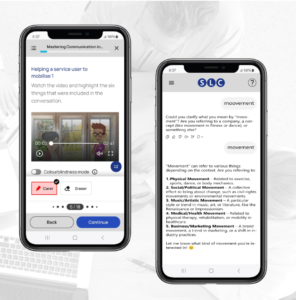
SLC win Ufi grant to develop AI language learning app for social carers
We’re delighted to have won a grant from Ufi VocTech Trust to develop an AI-driven technology solution that provides cheap phone-based language and communication skills

Are you studying Medical English with the hope of working one day in an Anglophone country? If so, you’ll need to understand a variety of accents. There’s the accent that’s local to where you live, but cities across the world contain many people who were born in other countries. Some speak with an intonation that may be unfamiliar to you. What do you do when someone in your consulting room has an accent that’s difficult for you to understand?
Firstly, you’re not alone. Plenty of native English speakers find themselves in a similar situation. Strong accents can be barriers to communication, and that’s nobody’s fault. If it happens to you, try paraphrasing what you think they’ve said. Ask, ‘Are you saying that …?’, add what you think the answer might be, and wait for confirmation or correction.
If all else fails, you have the great excuse for being a non-native speaker, and putting the blame on yourself for the lack of understanding. See if you can find someone who can help the communication along – the patient’s family member, perhaps.
To pre-empt this, you can try learning the ways people speak English. The good news is it’s relatively easy, thanks to the wide availability of films and TV programmes. However, it’s easy to think that passive understanding is the same as active learning. Try the following tips to help you with learning the accents of global English.
We’re here to help you with all aspects of Medical English, whether you’re a nurse or a doctor. Plus discover more free tips here.

Stephanie Lam is a writer, journalist, and English teacher. She specialises in writing fabulous words for the wellbeing and health industries.
SLC was the OET-accredited Premium Preparation Provider in Europe and is the leading provider of OET preparation services to the UK National Health Service.
SLC offers a wide range of OET preparation services, including self-study, tutoring, practice tests, and writing correction.
SLC’s ground-breaking online Medical English courses gives you the language you need to work, study and collaborate in an English-speaking environment.
Get updates and get the latest materials on Medical English, OET and IELTS

We’re delighted to have won a grant from Ufi VocTech Trust to develop an AI-driven technology solution that provides cheap phone-based language and communication skills

Back to Menu ↩ What is the UK Foundation Programme? The UK Foundation Programme is a two-year, structured, work-based training programme which is designed to
